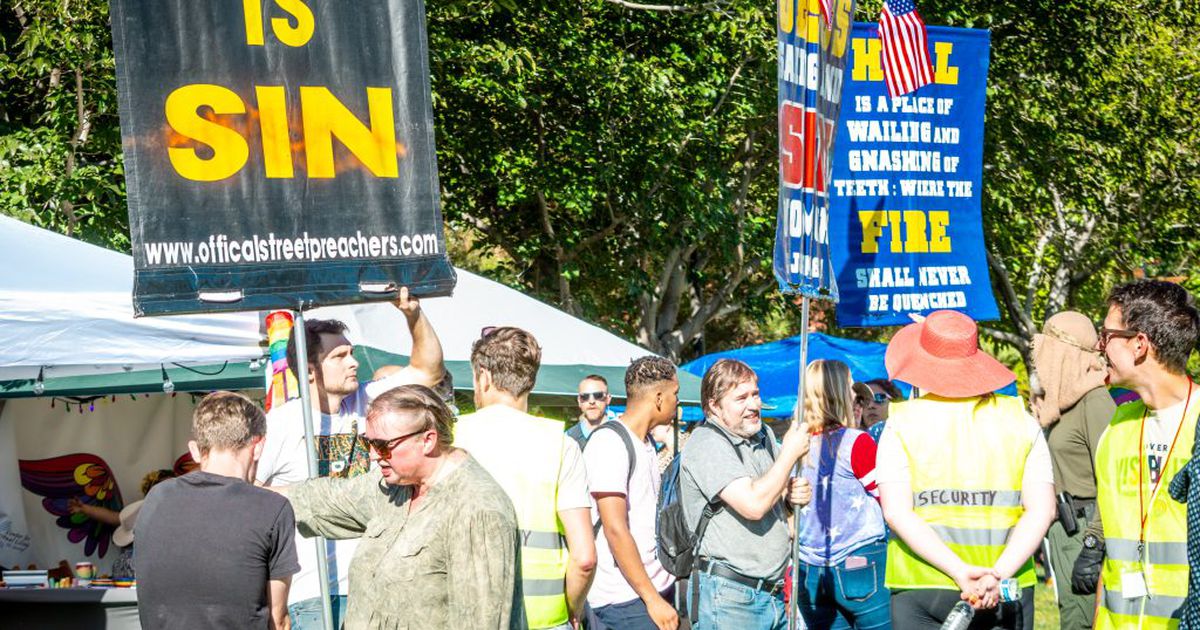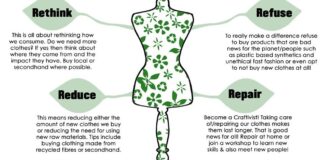
St. George • More than a week after a gunman killed five people and wounded 19 others at a gay nightclub in Colorado, members of the LGBTQ community in the St. George area are experiencing an all-too-familiar emotion: fear.
“I triple-check my doors at night to make sure they are locked,” said St. George resident and LGBTQ advocate Katheryne Knight. “I also talk to my friends more than I ever have and make sure they are OK, and I have to be aware of who is around me at all times.”
Toquerville resident Amberlyn Storey is considering buying a gun — not so much for herself, but out of fear of what might happen to others in the LGBTQ community. Others have said they are hunkering down in their apartments and homes, avoiding public events that could make them a target.
Knight and others say the comments of some St. George City Council members, especially Councilwoman Michelle Tanner, and other political leaders have stoked fear and hatred against drag shows. That, they believe, has put the queer community at risk.
To buttress their concerns, some cite Transportation Secretary Pete Buttigieg’s recent Twitter post about the tragedy in Colorado Springs, Colorado.
“If you’re a politician or media figure who sets up the LGBTQ community to be hated and feared — not because any of us ever harmed you but because you find it useful — then don’t you dare act surprised when this kind of violence follows. Don’t you dare act surprised,” tweeted Buttigieg, the first openly gay presidential Cabinet member to be confirmed by the U.S. Senate.
While Buttigieg was not specifically referring to anyone in southern Utah, members of the local LGBTQ community say he might as well have been.
“I see a direct correlation between what happened in Colorado Springs and what’s happening here,” said Dana Henry Martin, a Toquerville writer who is nonbinary and sexually fluid. “Hateful speech can incite hateful actions. We’ve had a lot of hateful speech here lately. Words and labels can turn to violence in the blink of an eye. I fear we’re on the cusp of that right now in southern Utah.”
What Martin and others are referring to is the furor over drag shows, especially the “We’re Here” drag show that HBO staged June 3 at St. George’s Town Square Park. After St. George City Manager Adam Lenhard refused to buckle to the City Council’s demand that he revoke the permit for the event, he was forced to resign and given $625,000 as part of a confidential settlement agreement to avoid what could have been a costly lawsuit for wrongful termination.
Knight remembers the fear she felt going to a City Council meeting last summer to voice support for drag shows.
“I left a message on my laptop telling my family that I loved them,” she said. “I didn’t know if I would return home because people were threatening [the LGBTQ community]. It has always felt like if you try to stand up for the LGBTQ community your life is going to be at risk.”
Morgan Barrick, operations director of Pride of Southern Utah, said the already heated atmosphere in St. George grew even more tense in September when protesters disrupted the annual Pride Festival at St. George’s Town Square Park.
“They decided to block the stage with their huge signs, saying things like ‘Homo sex is sin,’ ‘You’re going to hell,’ and ‘You’re a threat to national security,’ ” Barrick said.
A meeting of the Liberty Action Coalition, which the Institute for Research and Education on Human Rights recently listed as a far-right extremist organization, further roiled emotions. During her remarks at the October meeting, coalition founder Patricia Kent displayed pictures of youth at a pride event in St. George.
“This is supposed to be the new exciting lifestyle and everybody’s supposed to love it. They are grooming our children for immoral satanic worship,” said Kent, who is the national chair of the Independent American Party and a write-in candidate who lost her bid for the Washington County clerk/auditor’s position on Nov. 8.
A former teacher in the Washington County School District, Kent resigned in 1996 and had her teaching certificate suspended on June 30, 2000, The Tribune reported Monday, for unprofessional conduct and having inappropriate and overly familiar relationships with students. Kent maintains she did nothing wrong.
Such events might have brought tensions about drag shows and LGTBQ issues to the surface, but Storey said they have been simmering in southern Utah for a long time.
“My car, which has gay stickers on it, has been tampered with on multiple occasions,” said Storey, a SafeZone Utah trainer in southern Utah who offers free workshops to help businesses and community members better understand LGBTQ culture and terminology and how to keep people safe if problems arise.
Storey is no stranger to brushes with bigots in St. George.
“I’ve had people pull up alongside me [in their vehicles] waving their MAGA hats and honking and screaming at me,” Storey continued. “I’ve had people tell me on three different occasions while waiting in a Costco gas line that I was brave for having gay bumper stickers. That doesn’t happen in California or Washington [state]. They couldn’t care less about my stickers there.”
An openly queer person is rare in Toquerville, and Storey said many people say inappropriate things when they meet her. For instance, one home health care nurse tending to her ailing father was not vaccinated and said COVID vaccines and boosters changed people’s DNA and made them gay.
“I asked her, “Wouldn’t everybody who got the shot be gay, then?’” Storey recalled. “And she couldn’t come up with an answer for that.”
‘We’re Here’ screening
As bad as the climate for the queer community has been, some fear it could get even worse. After Tanner and Liberty Action Coalition members lambasted Utah Tech for allowing LGBT students to host a drag show on campus, Sarah Ostler, president of the LGBTQ Club at Utah Tech, said university police added extra security at such events. She said she was slated to meet with the university’s interim police chief, Ron Bridge, this week to discuss beefing up security even more at the club’s weekly events.
Another potential flashpoint for violence is the screening of the HBO “We’re Here” drag show that was filmed in St. George, which will be shown at the Sunset Megaplex Theatre on Dec. 7.
Micah Barrick, Morgan’s husband and executive director of Pride of Southern Utah, said some in the community have reservations about attending the screening.
“A lot of people are very afraid, especially with a lot of the negative rhetoric about the LGBTQ community coming from members of our City Council,” Micah Barrick said. “They are worried that some of the things that are being said in St. George could potentially incite [violence like what happened in Colorado Springs].”
Pride of Southern Utah leaders say they are working with St. George police to ensure there is extra security at the “We’re Here” screening and at future events.
St. George police could not be reached for comment.
For her part, Martin would like city officials and community leaders to choose their words more carefully.
“Cast aside what’s not working, like calling the LGBTQ+ community evil,” she said. “Stop thinking this doesn’t affect you if you’re not LGBTQ+. This affects everyone. I’m begging people to realize that before a tragedy comes to St. George, one none of us will ever recover from.
“The LGBTQ+ community is devastated across the country and here in southern Utah,” she added. “We’re all dealing with our feelings and grief in our own way. It’s exhausting to be called to respond, time and time again, to these types of tragedies. The LGBTQ+ community can’t do this work alone — the difficult, impossible work of trying to live fully on the one hand and trying to stay alive on the other.”
Note to readers • This story is available to Salt Lake Tribune subscribers only. Thank you for supporting local journalism.








